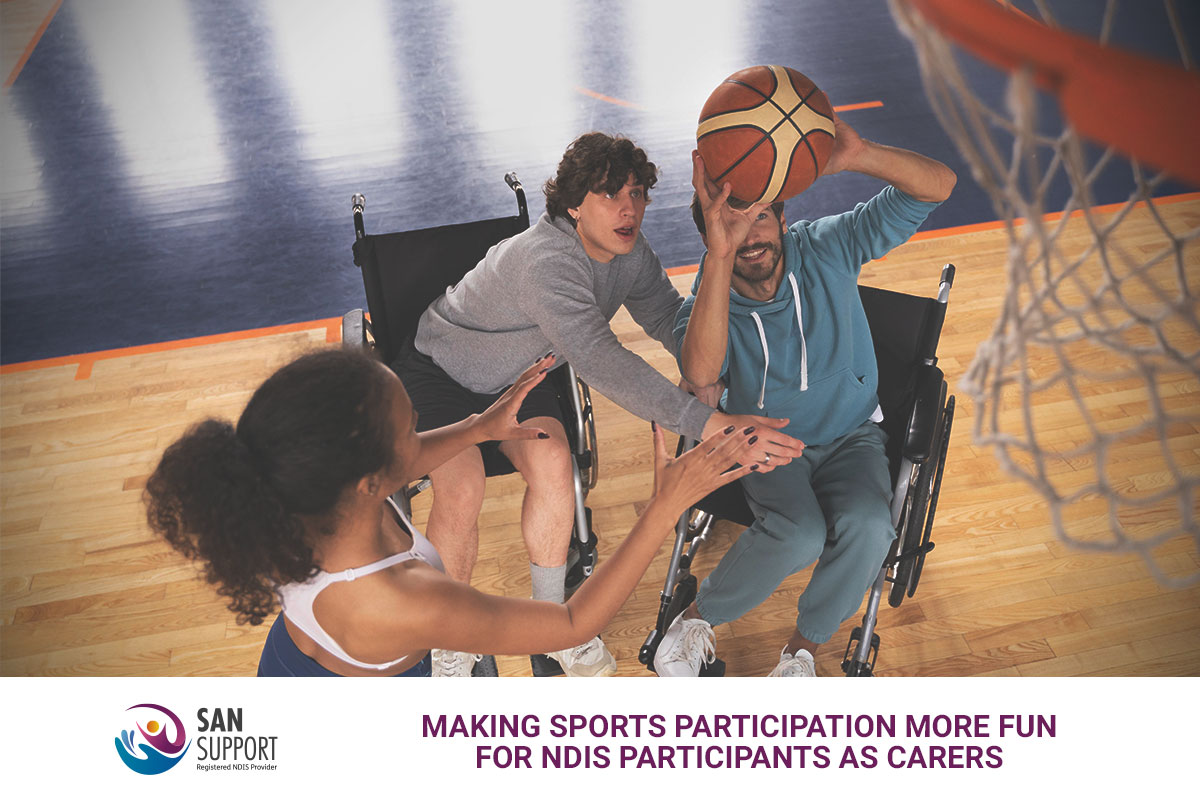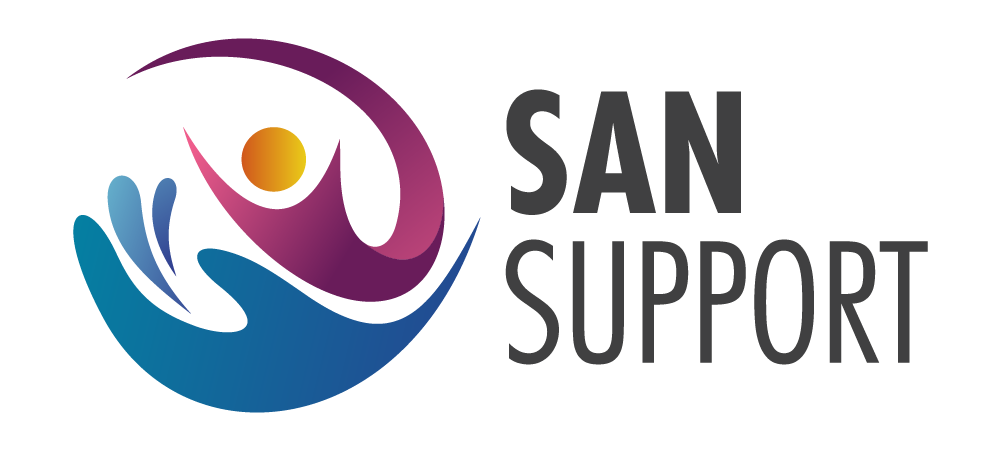
Sport is more than movement. It builds confidence, strengthens social connections and enhances long-term wellbeing. For people living with disability, participating in disability sports or recreational activities also supports key goals outlined in their NDIS plan especially in areas like physical health, independence and community participation.
However, starting a sport can feel daunting especially without the right support network. That’s why both informal supports (like family and friends) and formal supports (such as NDIS-funded support workers and health professionals) play a critical role.
In this article, you will discover how each support role uniquely contributes to making sports more accessible, more enjoyable and more sustainable for NDIS participants.
Why Sport Matters for NDIS Participants
Engaging in sport allows NDIS participants to:
- Improve their physical strength, mobility and coordination
- Build structure and routine into their daily lives
- Develop independence and resilience
- Strengthen mental health and emotional wellbeing
- Foster community connection and social skills
With the right support, participants do not just play they thrive. Sport becomes a powerful tool for inclusion, empowerment and personal achievement.
How Friends and Family Support Sports Participation
Family members, friends and carers often provide the first line of encouragement. Their emotional support and everyday involvement help participants take their first steps into the sporting world.
Encouraging Participation from the Start
As a carer or family member, you play a hands-on role in helping someone begin their sports journey. You can:
- Research local inclusive sporting programs
- Coordinate transport to and from training sessions
- Practise skills together at home or in the park
- Offer ongoing encouragement and motivation
- Attend events to cheer them on
For example, if someone is interested in joining a wheelchair basketball team, you might help them research local clubs, complete registrations and accompany them to their first few sessions.
Keeping Sport Safe, Consistent and Social
After that initial start, your continued involvement can keep the momentum going. When sport feels social, it becomes something to look forward to not just a health activity. Joining a team or having a training buddy makes it easier to stay motivated.
Furthermore, being present during training helps ensure safety. You may notice when the participant shows signs of fatigue, poor posture or emotional overwhelm. This allows for early intervention and a more positive, injury-free experience.
How NDIS Support Workers Enhance the Sporting Experience
While informal support is invaluable, NDIS-funded support workers bring a professional and structured layer of assistance. Their goal is to build capacity and promote independence while helping participants engage fully and safely in disability sports, ensuring both enjoyment and long-term participation.
Using Core Supports for Community Participation
Through the NDIS Core Supports budget, participants can access funding under Assistance with Social, Economic and Community Participation. This may include:
- A support worker attending training sessions or competitions
- Help with stretching, warming up and post-activity routines
- Assistance during the activity to stay engaged and focused
For instance, a support worker might accompany someone to weekly dance classes, help them prepare before the session, offer support during and ensure a smooth transition home.
Accessing Therapeutic Supports Through Capacity Building
In addition to in-session help, participants may use their Capacity Building: Improved Health & Wellbeing funding to work with:
- Accredited exercise physiologists
- Qualified personal trainers experienced with disability
- Allied health professionals such as occupational therapists
These professionals can adapt routines, monitor form and work towards individualised health goals whether it is improving coordination, increasing stamina or regaining mobility. Importantly, participants do not need to aim for elite performance. The focus is progress, safety and enjoyment.
How to Check If Your NDIS Plan Covers Sport
If you are unsure whether a participant’s plan includes sport-related supports, you can take the following steps:
- Log into the my NDIS app or myplace portal
- Contact the Plan Manager to check available budgets
- Speak to a Support Coordinator, who can clarify eligible supports and help align them with your goals
Building the Right Support Team for Sport
The best outcomes happen when informal and formal supports work together. Each plays a unique but complementary role:
- Family and friends offer emotional encouragement and social connection
- Support workers provide structure, safety and capacity-building
- Therapists and coaches guide physical development and goal achievement
This full-circle support empowers participants to try new things, stay consistent and improve both physically and emotionally. Whether it is swimming, wheelchair rugby, yoga or adaptive cycling having a sport support squad makes the experience richer and more rewarding.
Choosing the Right Sport
There’s no single “right” sport for every participant. Some may prefer structured solo activities like athletics or swimming, while others may enjoy the social aspect of team sports such as soccer or basketball. Some may be interested in exploring adaptive or Para-sports, especially if they have long-term athletic goals.
As a carer or support worker, you can help by encouraging variety, supporting trial sessions and asking what the participant enjoys most. The goal is enjoyment, not performance.
How SAN Support Helps NDIS Participants in Sport
At SAN Support, we empower NDIS participants and their families to explore inclusive opportunities. Whether someone is just getting started or looking to reach new goals, we provide the right mix of support and coordination.
Our team understands the power of movement and connection. We believe every participant deserves the chance to play, grow and enjoy sport on their terms.
Final Thoughts: Let’s Get Moving
Disability sports are a meaningful part of life for many NDIS participants. They build confidence, strengthen bodies, improve mental well being and foster a strong sense of belonging. Whether you are a carer, family member or support worker, your role is essential in helping someone begin and continue a sport they love. By combining encouragement, planning and the right NDIS supports, you can help transform disability sports into a lifelong habit that brings purpose, routine and joy.
